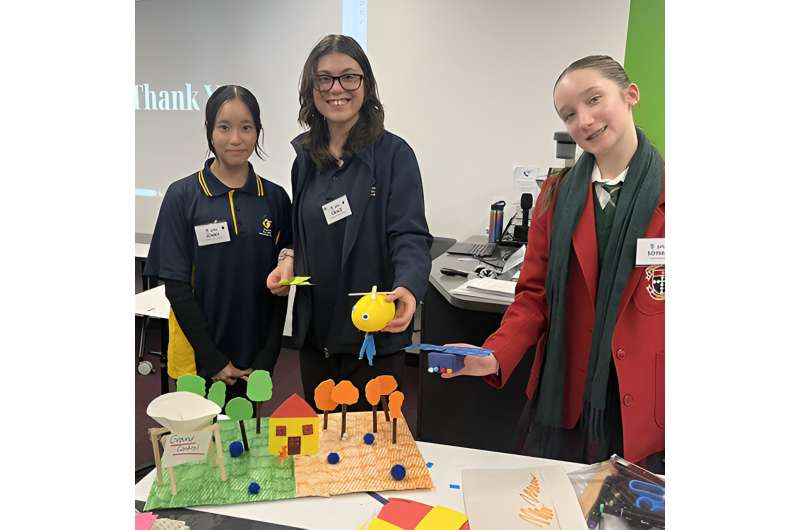This article has been reviewed according to Science X's editorial process and policies. Editors have highlighted the following attributes while ensuring the content's credibility:
fact-checked
trusted source
proofread
Switch up teaching and assessment to help teachers combat chatbot-cheating, say researchers

It's the chatbot technology that can write an essay in a second, but despite its vast capabilities, generative AI is creating headaches for education, particularly when it comes to student integrity and cheating.
Now, new research from the University of South Australia, shows that teachers can combat AI by adopting a transformative approach to teaching and assessments: Design Thinking.
Design Thinking is a human-centric and curiosity-driven methodology that can be easily adapted to the classroom. It builds student creativity, critical thinking, and collaboration—skills that cannot easily be replicated by AI—while concurrently enabling teachers to monitor and assess student learning in a formative manner.
Lead researcher and UniSA Ph.D. candidate Maria Vieira, says by adopting a Design Thinking approach, teachers can address integrity issues posed by generative AI.
"Teachers at all levels of education are challenged by the dilemmas presented by generative AI, with one of the biggest issues being academic honesty and authenticity," Vieira says.
"Chatbots like ChatGPT, Meta AI or Microsoft Copilot are a great temptation for students, particularly when an essay can be produced with just a single click. We know that new technologies are not going away, so as teachers, we need to find ways to promote and assess authentic learning.
"Design Thinking requires students to work through several phases of learning: empathy, definition, ideation, prototyping, testing and evaluation, with each step requiring a specific outcome, an opportunity for feedback, and importantly, a touchpoint for prompt feedback and formative assessment.
"Unlike traditional classroom settings where there is often a 'right' answer, Design Thinking addresses problems without predetermined solutions, challenging students to think more critically and creatively.
"The beauty of Design Thinking is that it allows teachers to assess student progress at any point of the process, and at either individual or group level, which immediately presents a solution to integrity issues posed by generative AI."
Design Thinking can lead to a multitude of different creative outputs, including prototypes, mind maps, and presentations, and enables assessment both at individual level (through evidence of research or self-reflection pieces) and group levels (based on output produced).
As the phases occur in an iterative loop, students can revisit and review their work, which encourages continuous improvement, and helps them learn how to provide and receive constructive peer feedback.
"During the Design Thinking process, students have the opportunity to navigate ambiguity, develop empathy, recognize failure as part of the learning process, and collaborate—all skills that are essential for the 21st century," Vieira says.
"This teaching method encourages students to take greater ownership of their learning, allowing teachers to shift their focus from delivering content, to observing and supporting their students in the classroom, being more attentive to their development and learning process.
"While Design Thinking may not be the only solution for the future of education, it is undoubtedly a successful strategy that can be readily adopted across K-12 education systems to address some of the most pressing challenges associated with AI and global digitalization."
To learn more about Design Thinking, teachers can access a free online course presented by Maria Vieira and offered through the Education Futures Academy.
Provided by University of South Australia





















